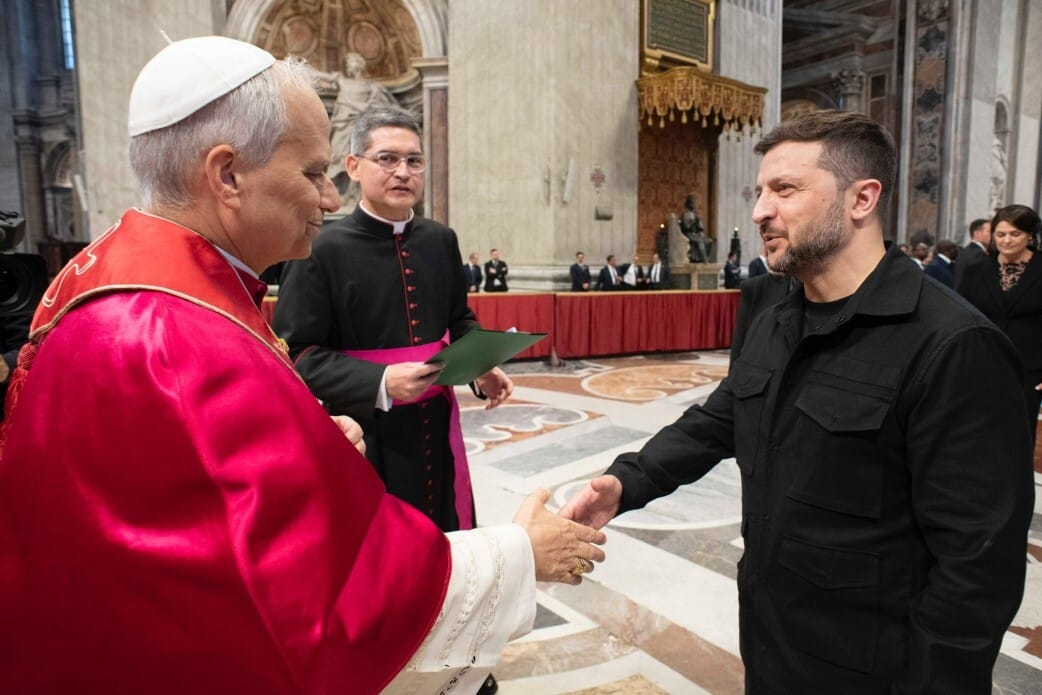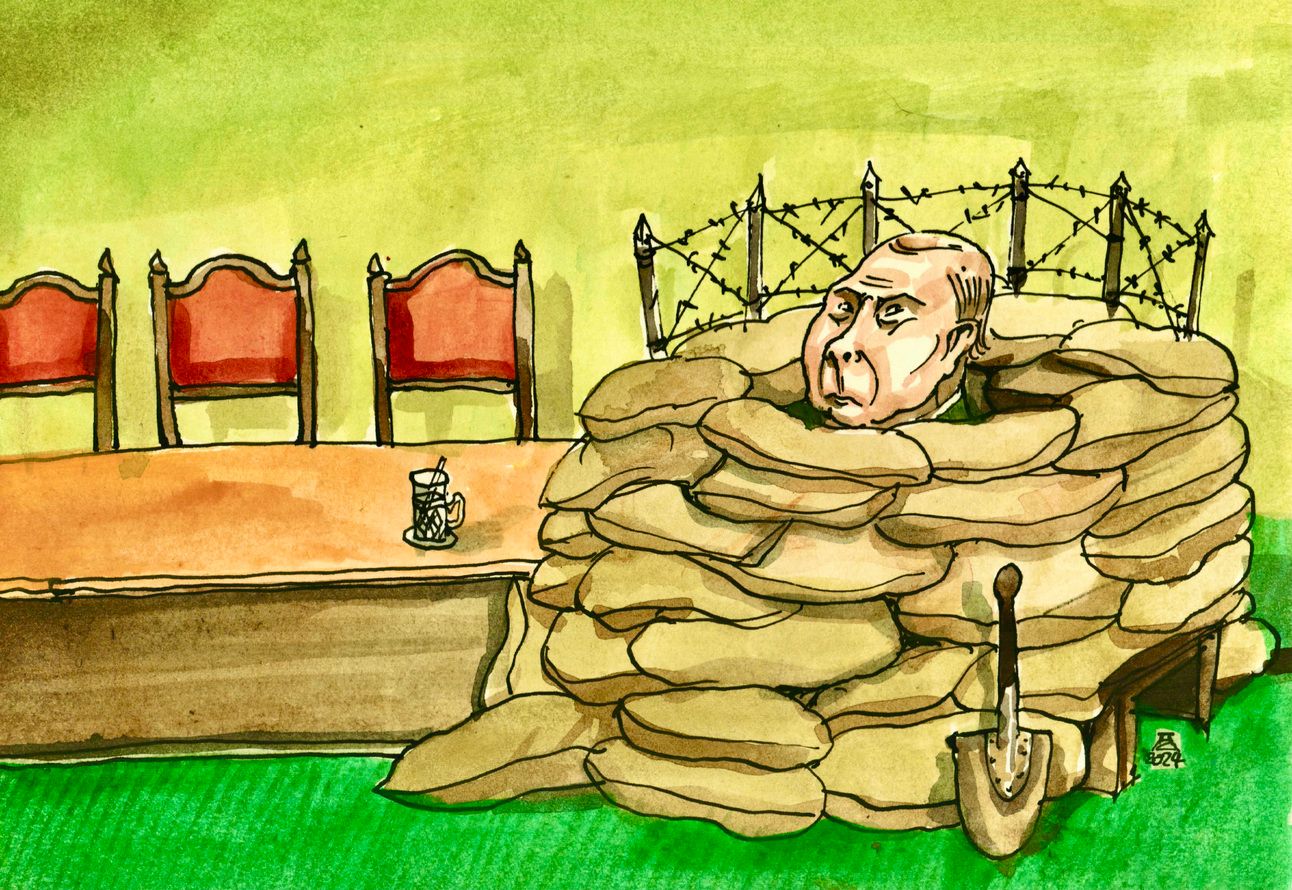DEAR READER,
Poland is heading into the second round of its presidential election and the campaign has taken some interesting turns — including snus and beer — besides actual politics. The two remaining candidates held rival marches in Warsaw yesterday, each trying to rally supporters ahead of the June 1st runoff. More details in our headlines.
Meanwhile, our top story this week turns to Ukraine. With peace talks stalled and missiles dropping on Ukrainian cities, it’s increasingly clear that Russia may be preparing for a renewed offensive rather than a diplomatic solution. Our editor in chief, Adam Reichardt, takes a closer look at what’s really happening, and what it all means.
And finally, happy Independence Day to Georgia and all our Georgian readers!
Enjoy reading this week’s “brief”!
— Giorgi Beroshvili, Editor
TOP STORIES OF THE WEEK
🇵🇱 Poland’s presidential race is heading for the second round. Centrist Rafał Trzaskowski and conservative Karol Nawrocki held marches in Warsaw ahead of their June 1st runoff, each backed by their respective camps and eyeing support from far-right voters. Trzaskowski rallied with coalition allies and Romania’s new president, while Nawrocki appeared with PiS leaders and signed a pact with far-right candidate Sławomir Mentzen. Trzaskowski declined to sign but endorsed some of Mentzen’s proposals during a YouTube appearance. Read our recent analysis of the 2025 presidential elections in Poland.
🇭🇺 Hungary’s opposition leader, Péter Magyar marched from Budapest to Oradea, Romania. The aim was to rally ethnic Hungarian voters traditionally loyal to PM Viktor Orbán. In a speech denouncing Orbán’s ties to far-right Romanian politicians, Magyar accused the prime minister of exploiting Hungarians abroad for votes. He called for unity, warned against division, and praised Romania’s recent pro-EU election result. Magyar said the rally showed growing support for change.
🇱🇹 Lithuania’s spy chief wants to criminalise subversive activity. VSD director Remigijus Bridikis called for legal reforms to tackle threats like disinformation, sabotage, and collaboration with hostile states. The proposal (first floated in 2016 and now revived) comes amid rising concerns over Russian espionage and influence operations. His comments follow a controversial trip by ex-presidential candidate Eduardas Vaitkus to Belarus, where he bashed Lithuania and met with pro-regime figures. Authorities have since launched an investigation.
🇷🇺 Russia rejected Vatican-hosted peace talks. Russian Foreign Minister Sergei Lavrov dismissed the idea as “vulgar,” citing discomfort over two Orthodox nations meeting on a Catholic platform. The Vatican had been proposed by Pope Leo XIV and backed by Ukraine and its allies. Instead, Russia is sticking with low-level talks in Istanbul. No date or venue for high-level talks has been set.
A MESSAGE FROM OUR PARTNER
40-55 In the US with $200k+ in Retirement? Retire confidently.
If you’re 45-55, living in the US and have saved $200k or more for retirement, make sure your hard-earned savings last as long as you do and continue to grow safely, without market risk. This strategy can protect your funds from potential losses and give you steady growth, so you can retire without stress. Don’t let a market dip impact your future—secure your retirement. This strategy immediately adds 20% to your savings, so it not only grows long term, it increases right away.
EXPERT OPINION
Is Russia planning a new offensive?

This past weekend Kyiv and other major Ukrainian cities across the country experienced the heaviest bombardment since the start of the full-scale Russian invasion in 2022. At least 12 civilians were killed in the weekend attacks, with over 60 wounded. A total of 115 houses in the Kyiv oblast alone were damaged.
With all the news of the escalation in Ukraine, it is hard to believe that direct negotiations between Russia and Ukraine took place a mere 10 days ago. And they did not achieve much. After less than two hours of discussions, the only thing both sides could agree on was a prisoner exchange between the two sides — each releasing 1,000, which was completed over the weekend. What the negotiations should have proved to the West — and especially the Trump administration — is that Vladimir Putin still feels that he has an upper hand, and is more confident than ever. During the negotiations, Russia presented demands which for Ukraine (and the West) were unrealistic and unacceptable.
After the Istanbul talks, the ball was in Russia’s court, which was supposed to prepare a special memorandum for the conditions of peace. The document has not yet been submitted to the negotiating parties, and many have doubts whether anything new will be in the memorandum. According to Russia, in order to even begin the discussions on a ceasefire, Ukraine must withdraw its troops from the territory which it controls on the four oblasts of Kherson, Zaporizhzhia, Luhansk and Donetsk. A recent analysis by the Institute of War states that “Russia's conditions are unlikely to be anything short of Ukraine's full surrender”.
Obviously, the Kremlin knows these demands will not be fulfilled by Kyiv, and thus can point to Ukraine’s unwillingness to negotiate. The stalemate for the most part has led the Trump administration to give signals it is willingness to move on to other priorities and give up on the process altogether.
Instead of preparing for peace, Russia appears to be preparing for a major escalation on the ground. Perhaps a summer or early autumn offensive to take over the remaining territories in those above-mentioned oblasts still controlled by Kyiv. Europe, meanwhile, seems hesitant on how to respond to any major escalation. Despite some positive signs of unity and support towards Volodymyr Zelenskyy and Ukraine, there are less actions than words. Risk of further sanctions has little to no deterrence effect, and any military involvement of the so-called Coalition of the Willing only comes after a permanent ceasefire is in place, which is unlikely.
With continuous onslaughts of Russian drones and missiles, Ukraine’s air defences are constantly tested. As a result there are signs that Kyiv may be preserving resources as best it can, especially since most experts believe direct US military support will end this summer. Aid continues from Europe, but critics decry the pace, while recent reports indicate European countries face a significant lack of materials to produce the level of ammunition needed, citing a significant lack in resources, gunpowder, TNT, and rocket fuel. Stocks are seriously low throughout Europe as they have already donated what they could to Ukraine and with the new ReArm Europe plan, the focus needs to be also on domestic preparedness. What’s more, there are reports that Russia has adapted its missile technology to evade patriot defence systems.
Thus, Vladimir Putin feels more confident than ever. There are no signs that he will back down and the faint glimmer of a ceasefire is fading fast. Even Donald Trump has admitted that Putin “has gone absolutely crazy”.
The big question now is what comes next? There is no doubt that this summer will be decisive. If Russian forces advance further into Ukraine, how can Europe (or the whole West) respond? Certainly European leaders are trying to figure that out. However, it may seem there are fewer options available than ever before. And it seems unlikely the United States will change its attitude and renew much needed military aid.
Nevertheless, the consequences need to be discussed now, especially if Europe wants to help Ukraine avoid the worst case scenario. This is also debated in our current edition of New Eastern Europe, which I highly recommend to our readers, available online here.
From today’s perspective it seems that the window for decisive action is rapidly closing, and hesitation could prove catastrophic not only for Ukraine but for the stability of Europe as a whole. The time to confront this reality and prepare an adequate, united response is now, before it is too late.
— Adam Reichardt, Editor in Chief at New Eastern Europe
SUPPORT NEW EASTERN EUROPE

New Eastern Europe — a non-profit publication based in Poland — has been covering the region since 2011. With a network of contributors across Central and Eastern Europe, we provide in-depth, English-language analysis, firsthand perspectives, and stories that often go unheard.
Your support helps us continue giving voice to the region.
ARTICLES OF THE WEEK
CARTOON OF THE WEEK

Do you want to see more of Andrzej’s drawings? Check out our dedicated gallery page featuring his cartoons here.



